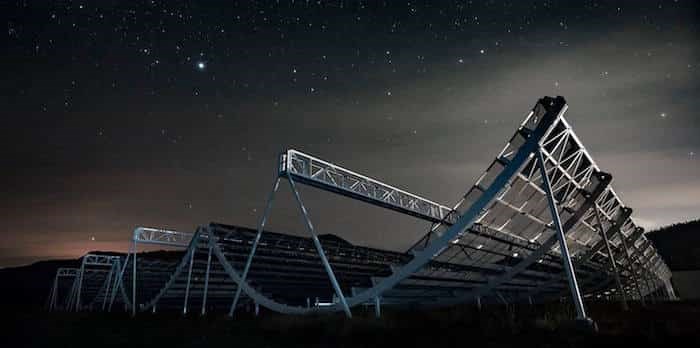 University of British Columbia / Facebook
University of British Columbia / Facebook
"A long time ago in a galaxy far, far away...."
A repeating fast radio burst (FRB) from deep space has been picked up by a team of Canadian scientists operating near Penticton, and it is only the second of its kind to ever be recorded.
The discovery was published in the journal Nature, and presented at the American Astronomical Society meeting in Seattle.
The repeating FRB was one of 13 new bursts detected in just two weeks by the Canadian Hydrogen Intensity Mapping Experiment (CHIME) - the awe-inspiring radio telescope designed and built by scientists at the University of British Columbia, McGill University, the University of Toronto, the Perimeter Institute for Theoretical Physics and the National Research Council of Canada.
“Until now, there was only one known repeating FRB. Knowing that there is another suggests that there could be more out there. And with more repeaters and more sources available for study, we may be able to understand these cosmic puzzles—where they’re from and what causes them,” said Ingrid Stairs, a member of the CHIME team and an astrophysicist at UBC.
“With CHIME mapping the entire northern hemisphere every day, we’re bound to find more repeaters over time,” said Stairs. “Knowing where they are will enable scientists to point their telescopes at them, creating an opportunity to study these mysterious signals in detail."
Interestingly, the telescope, located in British Columbia’s Okanagan Valley, was running at a fraction of its full capacity when the discovery was made. What's more, most FRBs have been recorded at wavelengths of a few centimetres, the latest FRBs were detected at wavelengths of nearly a metre.
“We’re very excited to see what CHIME can do when it’s running at full capacity,” said Deborah Good, a PhD student in physics and astronomy at UBC who is part of CHIME’s FRB team. “At the end of a year we may have found 1,000 more bursts. Our data will break open some of the mysteries of FRBs.”


